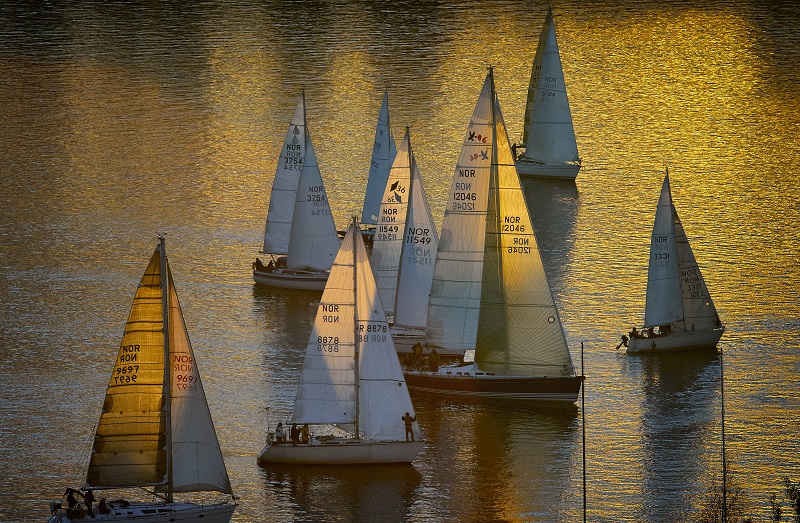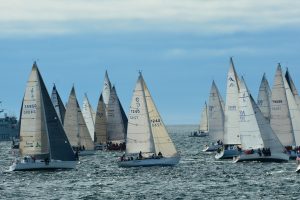

One of the biggest tactical problems that you need to consider when fleet racing is how to avoid wind shadows. Avoiding other boats on the course is really important and you must be constantly aware of the significant effects of bad air.
In any race with a large number of competitors, you will normally sail in disturbed air for at least a part of each upwind leg. It is your aim to get to clear air as quickly as possible because whenever you are affected by another boat’s wind shadow, you are going slower and losing ground to most other boats.
Wind shadows on a beat is one obvious reason why the leaders keep getting farther ahead and the tailenders farther behind. So one of your main tactical challenges on any beat is figuring out how to keep your air clear as long as possible.
I have listed below some ideas on how to do this:
Know the location of bad air.
Dirty air extends to leeward of a boat in the direction opposite to her apparent wind.
A great way to work out the direction of the wind shadow is to observe the other boats’ masthead wind indicator.
How Bad Is the Bad Air You Are Experiencing?
In light wind it’s very slow to sit in another boat’s wind shadow. When someone tacks on your breeze, you must almost always do something to clear your air, even if this means putting your strategic plan on hold.
In heavy air, bad air is much less harmful, so you might decide to keep sailing in a boat’s dirty air for a period of time for strategic reasons.
How valuable is clear air?
In a small fleet, clear air is easy to find. So make sure that you are in clear air almost all the time, and don’t be willing to give up very much such as sailing in the wrong direction in order to find clear air.
In a large fleet it can be very difficult to avoid other boats’ dirty air, especially on the first beat. Therefore, it might be worth finding your own lane of clear air by sailing to the unfavourable side of the course.
FREE CHAMPIONSHIP SAILING GLOVES
Keep clear of your competitors.
It’s always better to keep away from other boats if possible. Every boat leaves behind an area of disturbed wind and water that will make you go slower.
Don’t make a habit of tacking on other boats, and they will tend to leave you alone as well.
Wave a port tacker across when you’re in a good lane on starboard tack, it’s better to duck a port tacker than to have them lee-bow you.
Use other boats to help you
When you’re on starboard tack, use a ‘blocker’ on your leeward side to keep port tackers from tacking on your lee bow.
When you’re in a good lane on port tack and you’re almost crossing a starboard tacker, ask them if you can cross.
The above are Excerpt’s from David Dellenbaughs’ Speed and Smart Newsletter SpeedandSmarts.com.

